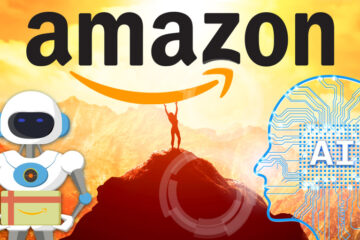Introduction:
In recent years, the rapid advancements in artificial intelligence (AI) technology have sparked discussions about its potential to replace human workers. While it is true that AI is transforming various industries, it is important to approach this topic with a balanced perspective. In this article, we will delve into the ways in which AI is impacting the workforce and how humans can adapt and thrive in this changing landscape.
Automation and Efficiency:
AI has proven to be a powerful tool in automating repetitive and mundane tasks. brians club This frees up human workers to focus on more complex and creative aspects of their jobs. For example, in manufacturing industries, robots can handle repetitive assembly line tasks, allowing humans to work on innovation, problem-solving, and customer interaction.
Data Analysis and Decision-making:
AI excels in processing and analyzing vast amounts of data in a fraction of the time it would take a human. This capability enables organizations to make data-driven decisions more efficiently and accurately. However, it is important to note that human judgment and contextual understanding are still crucial in making complex decisions that involve ethical considerations, empathy, and long-term planning.
Augmenting Human Abilities:
AI can be used as a tool to enhance human capabilities rather than replace them entirely. For instance, in healthcare, AI-powered diagnostic tools can assist doctors in analyzing medical images and providing accurate diagnoses, improving the overall quality of care. This collaboration between humans and AI can lead to improved outcomes for patients.
Job Transformation:
As AI takes over certain tasks, the nature of jobs will shift. Instead of eliminating jobs entirely, it is more likely that AI will reshape job roles and require workers to acquire new skills. Adaptability and continuous learning will be essential for individuals to thrive in this new era. Reskilling and upskilling programs can help workers stay relevant and seize new opportunities that arise with the integration of AI.
New Job Opportunities:
While some job roles may be impacted by AI, briansclub new roles will emerge in response to technological advancements. The development, maintenance, and oversight of AI systems will require skilled professionals. Additionally, industries that rely heavily on human interaction, creativity, and emotional intelligence, such as counseling, teaching, and the arts, are less likely to be fully replaced by AI.
Conclusion:
While AI undoubtedly has the potential to automate certain tasks traditionally performed by humans, it is unlikely to completely replace human workers. The true power of AI lies in its ability to augment human abilities, improve efficiency, and create new opportunities. As we navigate this evolving landscape, it is crucial to embrace the potential of AI while also investing in the skills and qualities that make us uniquely human. By adapting and working in harmony with AI, we can create a future where humans and machines complement each other, leading to a more productive and prosperous society.
Stay in touch to get more updates & alerts on Washington Greek! Thank you



